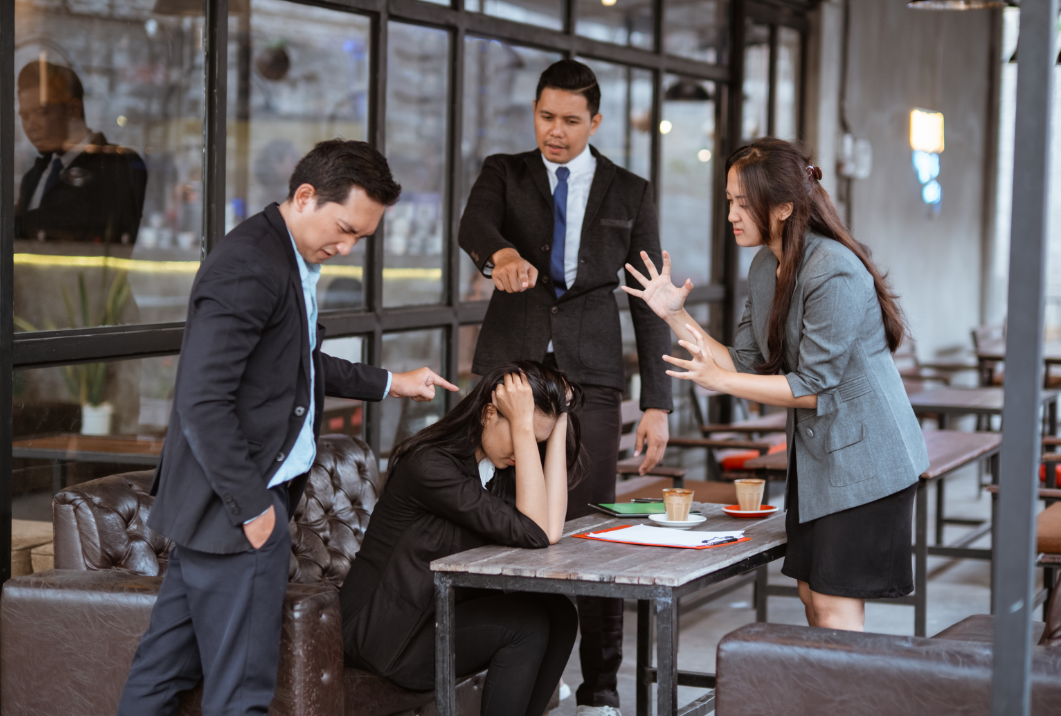Scapegoating: Why People Blame Others and How to Recognize It
Scapegoating is when people unfairly blame someone else for problems instead of facing the real issues. This happens a lot, and it's important to understand why. It's like a way for people to protect themselves and stay in control, even if it's not fair. Let's dive into why this happens, where it comes from, and how to tell when it's going on.
Why People Scapegoat:
Imagine you have a friend who messes up, but instead of admitting it, they point fingers at someone else. This is a bit like what happens with scapegoating. When people or groups face challenges, scapegoating lets them blame someone else. It helps them feel better about themselves and avoid feeling any negative emotion like guilt or embarrassment. It's a way to keep their pride intact.
Scapegoating can also bring people together. If a group creates an outside enemy, it can make them feel more united. They share a common "enemy," and it helps them forget their own problems for a while.
While this strategy may provide temporary relief, it often leads to negative consequences, both for the scapegoated individuals or groups and for the overall dynamics of relationships and communities.
Where Scapegoating Comes From:
Scapegoating isn't just a personal thing; it happens in bigger groups too. Throughout history, societies have often blamed minority groups or immigrants when times get tough. This collective behavior helps people feel like they have some control and unity, even if it's based on blaming others.
Culture and stereotypes also play a big part. If a group is already looked down upon in a society, they become easy targets when things go wrong.
How to Spot Scapegoating:
Finding scapegoating behavior isn't always easy because it can be sneaky. But there are signs you can look out for:
Unfair Blame: If someone is blamed for everything, even if it doesn't make sense, it might be scapegoating.
Not Taking Responsibility: Scapegoaters avoid admitting their mistakes or problems. They say things like "it's not our fault" or "they caused all our troubles."
Treating Others Badly: Scapegoaters often make the blamed person or group seem less human. They use mean words or stereotypes to justify blaming them.
Ignoring the Good Stuff: Scapegoaters focus only on the bad things about the blamed person or group. They ignore anything positive they might be doing.
Family Dynamics and Scapegoating:
Scapegoating doesn't just happen in big groups; it can affect families too. In families, one member might unfairly get blamed for everything that goes wrong. This creates a lot of problems, like:
Unhealthy Relationships: Scapegoating damages relationships within the family, making it hard for members to trust each other.
Emotional Pain: The person being blamed (the scapegoat) feels a lot of emotional pain. It can lead to low self-esteem and mental health issues.
Avoiding Real Issues: Scapegoating distracts families from dealing with their actual problems. Instead of working together, they focus on blaming one person.
Understanding why scapegoating happens and being able to recognize it helps us be fairer and kinder. When we know the signs, we can stop unfair blame, challenge stereotypes, and create a community that supports everyone. By getting to the root of scapegoating, we can build a world that values working together, understanding, and unity instead of blaming and dividing. Recognizing how scapegoating plays out in families emphasizes the need to break free from this destructive cycle and promote healthier relationships based on communication, empathy, and shared responsibility.


